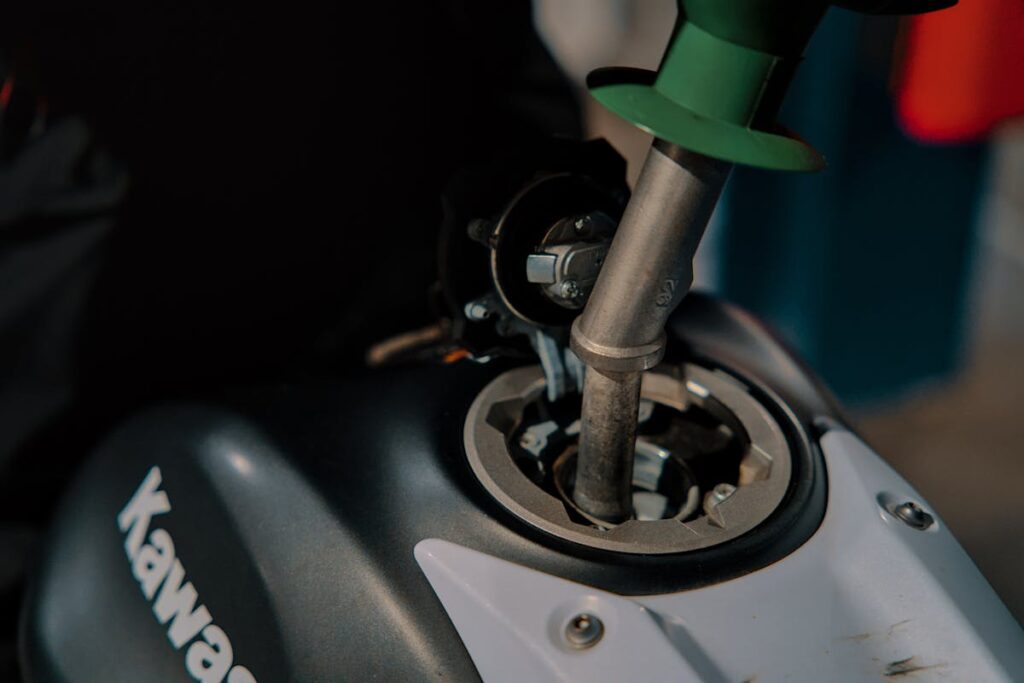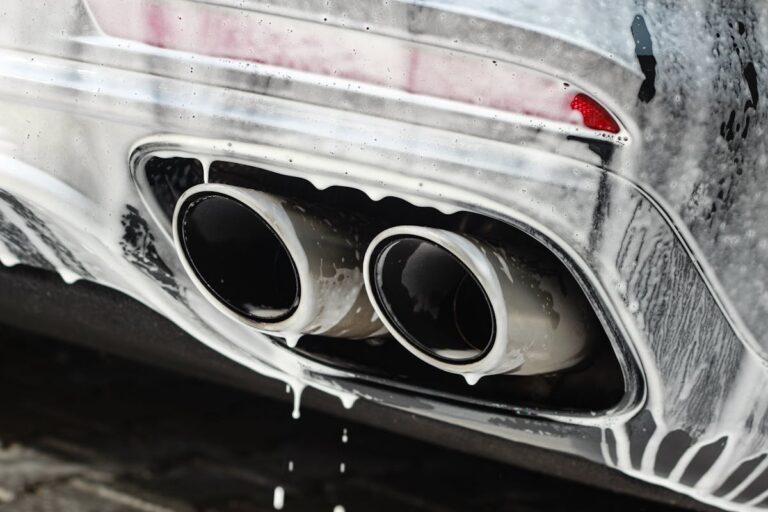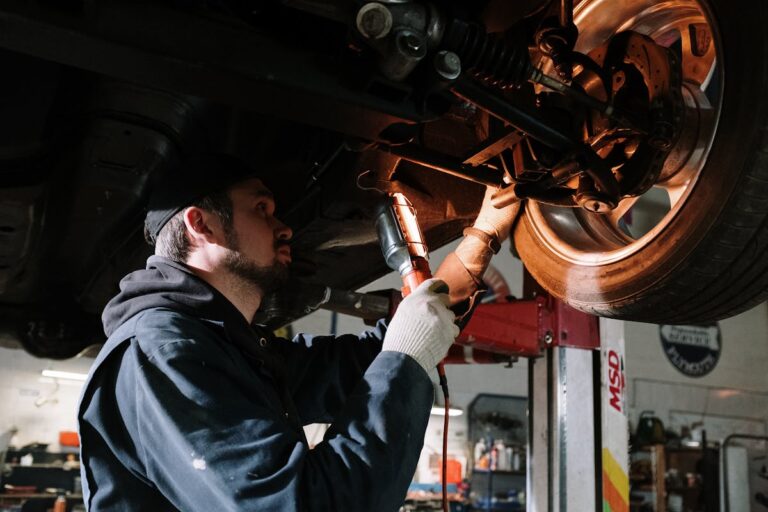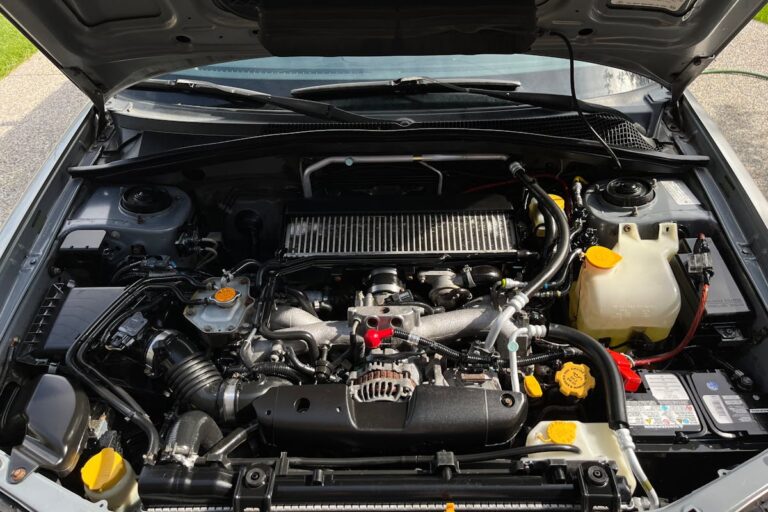Why Does My Exhaust Smell Like Gas
An unusual odor of gasoline from your vehicle’s exhaust can signify a multitude of underlying issues that demand attention. This could result from leaks in the fuel system, malfunctioning spark plugs, or even incomplete combustion. Alternatively, the problem might lie in rich fuel mixtures, leading to an expulsion of unburnt fuel, consequently producing the strong smell of gasoline. It’s imperative to understand these nuances for ideal vehicle performance and environmental responsibility. What, then, are the precise factors that might contribute to this concern, and how does one effectively address them?
Understanding Your Vehicle’s Exhaust System
Operating as the vehicle’s lung, your exhaust system plays a significant role in your vehicle’s functionality and overall performance. This system is responsible for controlling noise, directing exhaust fumes away from passengers, improving engine performance, and reducing emissions that damage the environment and human health.
The exhaust system is an intricate assembly of tubes and devices that commence at the engine and terminate at the exhaust pipe. Its core elements include the exhaust manifold, oxygen sensors, catalytic converter, muffler, and tailpipe. Each component performs a unique role in treating and venting the gases produced during the combustion process.
Regular vehicle maintenance is essential in ensuring your exhaust system is functioning at its best. Ignoring the health of your exhaust system can lead to a myriad of issues, including reduced fuel efficiency, increased emissions, and severe engine damage.
A malfunctioning exhaust system may produce a gasoline odor, which is a clear indication of an issue that needs to be addressed promptly. Understanding your vehicle’s exhaust system is the first step towards diagnosing and resolving such issues, thereby enhancing your vehicle’s performance and longevity.
Common Causes of Gasoline Smell
Two primary factors can contribute to the presence of a gasoline odor in your vehicle’s exhaust: fuel system leaks and incomplete combustion issues. Fuel system leaks, whether originating from the fuel tank, fuel lines, or fuel injectors, can result in raw gasoline reaching the exhaust system. Incomplete combustion, due to a malfunctioning spark plug or fuel injector, can also produce this smell as unburned fuel particles are expelled from the exhaust.
Fuel System Leaks
A lurking danger to both your vehicle’s performance and your personal safety, fuel system leaks often manifest as a persistent gasoline smell in your exhaust. These leaks may occur anywhere within your vehicle’s fuel system, including the tank, pump, filter, and injectors.
Fuel injector maintenance is a critical aspect of preventing fuel system leaks. Injectors are small nozzles responsible for spraying gasoline into the engine. Over time, these components may deteriorate, causing leaks and resulting in a gasoline odor. Regular maintenance, including cleaning and replacing injectors as necessary, can help prevent these issues.
When a leak occurs, gasoline may evaporate into the air, producing a strong odor. This process is exacerbated by high temperatures or direct sunlight. Vapor recovery systems are essential in controlling these emissions. These systems capture fuel vapors before they can escape into the atmosphere, reducing the gasoline smell and contributing to a cleaner environment.
Incomplete Combustion Issues
While fuel system leaks can indeed lead to a gasoline odor, another prevalent cause is issues with incomplete combustion in the engine. Suboptimal combustion, often due to engine timing or spark plug problems, can lead to excess fuel being expelled, contributing to the gasoline smell.
Incomplete combustion impacts not only the odor of exhaust but also the overall fuel efficiency of the vehicle. This is because the engine’s inability to fully convert fuel into kinetic power results in wasted fuel, reducing the miles per gallon ratio. Furthermore, this inefficiency can exacerbate wear and tear on engine components, leading to higher maintenance costs over time.
Additionally, incomplete combustion can lead to heightened emissions. Unburned hydrocarbons from the expelled fuel can greatly increase a vehicle’s carbon footprint, violating emission standards set by environmental regulatory bodies. Additionally, these hydrocarbons can contribute to harmful air pollution, exacerbating respiratory conditions for individuals in high-traffic areas.
Therefore, addressing incomplete combustion issues is essential not only for mitigating the gasoline smell but also for improving fuel efficiency and adhering to emission standards. Regular tune-ups, proper maintenance, and timely repairs can help prevent these issues, ensuring a healthier engine and environment.
Analyzing Fuel System Problems
Fuel system issues often manifest themselves in the form of a gasoline odor from your vehicle’s exhaust, signaling a potential problem that should not be ignored. The complexities of the fuel system are vast, however, the primary components i.e., the fuel pump, filter, and injectors, are often the origin of these issues.
Fuel pressure is a vital aspect of the fuel system’s functionality. If the fuel pump cannot maintain adequate pressure, it may result in a rich fuel mixture, which can cause the gasoline smell. For this reason, regular inspection of the fuel pressure is essential in identifying any potential problems early on.
Fuel injectors also play a pivotal role in the best operation of the fuel system. These components are responsible for atomizing the fuel into the combustion chamber. Over time, deposits can build up, hindering the injector’s performance. Consequently, injector cleaning becomes an important part of maintaining the fuel system.
A detailed analysis of these components, along with the rest of the fuel system, can help identify the source of any gasoline odors emanating from your exhaust. Addressing these issues promptly can maximize your vehicle’s performance and lifespan.

Role of Rich Fuel Mixtures
A vital factor in the examination of gasoline odors from exhaust systems is the role of rich fuel mixtures. These mixtures, defined by a higher ratio of fuel to air in the combustion process, can have significant effects on vehicular performance and emissions. The subsequent discussion will focus on understanding the characteristics of such mixtures and the potential consequences of their over-utilization in internal combustion engines.
Understanding Rich Fuel Mixtures
Delving into the territory of internal combustion engines reveals the crucial role played by rich fuel mixtures. Fundamentally, a rich fuel mixture is a condition where there is an excess amount of fuel compared to air in the combustion process. This scenario is contrary to a lean mixture that contains more air than fuel.
The concept of rich fuel mixtures is significant in the area of fuel efficiency. An engine operating with a rich mixture generally burns more fuel per unit of distance, consequently affecting fuel economy negatively. However, this condition is sometimes necessary under specific operational circumstances, such as during engine start-up or high-load situations, to prevent engine damage and guarantee peak performance.
Additionally, the subject of rich fuel mixtures is critical in the context of emissions standards. Owing to the excess fuel, rich fuel mixtures produce higher amounts of pollutants, including carbon monoxide and unburned hydrocarbons, posing challenges to meet stringent emission norms. However, modern vehicles use sophisticated engine management systems and catalytic converters to enhance the air-fuel mixture and minimize harmful emissions, thereby guaranteeing compliance with emissions standards.
Consequences of Rich Mixtures
While it might appear that a rich fuel mixture simply results in higher fuel consumption and greater emissions, the implications extend beyond these immediate outcomes. In the context of rich mixtures, the excess fuel does not combust completely, resulting in unburnt fuel exiting the engine and entering the exhaust system. This consequently leads to the notable smell of gas.
This gas smell is not merely an olfactory concern but denotes a severe impact on fuel efficiency. As more fuel is consumed for each combustion cycle, the vehicle’s overall miles per gallon markedly decrease, leading to increased fuel costs.
In addition, rich fuel mixtures pose a substantial threat to emission standards. Unburnt hydrocarbons escaping into the atmosphere contribute to smog, posing environmental risks. Additionally, the excess fuel can damage the catalytic converter, an essential emission control device, leading to costly repairs and further emission standard violations.
Lastly, the potential for engine damage cannot be overlooked. The unburnt fuel can wash into the cylinder walls, removing the lubricating oil and causing premature engine wear. Consequently, a rich fuel mixture, while seemingly simple, has far-reaching impacts extending to fuel efficiency, emission standards, and overall vehicle longevity.
Impact of Leaking Fuel Injectors
Exuding a potent gas scent, your vehicle’s exhaust may indicate a problem with the fuel injectors. The impact of leaking fuel injectors is multifaceted, leading to a variety of mechanical and environmental problems.
Fuel injector types play an essential role in how an engine performs. For example, the pintle type injector provides a fine spray of fuel, which is ideal for creating an ideal fuel-air mixture. However, a leak in this type of injector can lead to a rich fuel mixture, causing your exhaust to smell like gas.
Fuel injector maintenance is key to preventing leaks. Over time, deposits can build up on the injector nozzle, leading to wear and tear, and eventually, leaks. Regular cleaning and maintenance can help prevent this issue.
A leaking fuel injector can have serious consequences. It can cause the engine to run rich, leading to decreased fuel efficiency and increased emissions. Additionally, the unburned fuel can damage the catalytic converter, leading to costly repairs. Overall, a leaking fuel injector is not only a threat to your vehicle’s performance but also to the environment.
Potential Cylinder Misfire Issues
Although a leaking fuel injector is a common cause for a gasoline odour from the exhaust, it is not the only possible culprit. Cylinder misfire issues can also contribute to this problem. Misfires are typically caused by issues with cylinder compression or improper ignition timing, both of which can lead to unburnt fuel being expelled from the exhaust, thereby creating a strong gasoline smell.
Cylinder compression is an essential component of the combustion process. If a cylinder isn’t properly compressing the fuel and air mixture, it can lead to incomplete combustion. This can result in excess fuel being pushed into the exhaust system without being fully burnt, which can produce a gasoline smell.
Similarly, if the ignition timing is off, the spark plug may ignite the fuel and air mixture either too early or too late in the combustion process. This can lead to incomplete combustion and, consequently, a gasoline odour. Maintaining the correct ignition timing is vital for efficient operation of the engine and to avoid potential cylinder misfire issues.
Understanding these potential causes can help in accurately diagnosing and addressing the issue, thereby eliminating the unwanted smell of gasoline from your exhaust.
Addressing Exhaust System Leaks
Exhaust system leaks are another significant factor that can cause your exhaust to smell like gasoline. These leaks occur when the integrity of the exhaust system is compromised, leading to the escape of uncombusted fuel. The uncombusted fuel, which contains gasoline, is then expelled through your car’s exhaust, producing the gasoline smell.
There are various methods for leak detection in the exhaust system. Visual inspection is the most straightforward way to detect leaks. Dark soot around the exhaust system, especially around the joints and connection points, can indicate a leak. Another method is to listen for a hissing or popping noise from the exhaust, which often signifies a leak.
Once a leak is detected, exhaust repair should be undertaken immediately to prevent further complications. The repair process normally involves either patching up the leak or replacing the faulty part of the exhaust system. This rectifies the issue and eliminates the gasoline smell from the exhaust.
It is important to note that exhaust leaks can lead to serious issues, such as reduced fuel efficiency and increased emissions. As a result, addressing exhaust system leaks promptly and effectively is essential for the best performance of your vehicle.
Seeking Professional Help and Advice
In light of the complexities associated with exhaust system repairs, seeking professional help and advice is often the most pragmatic approach. A professional’s expertise can identify the root cause of the issue, which may not be immediately apparent to the untrained eye. They can conduct professional diagnostics, investigating the potential reasons for the gasoline smell emanating from your exhaust.
It’s essential to understand that the exhaust system is a complex assembly of various components. Each part, from the muffler to the catalytic converter, functions together to reduce harmful emissions, minimize engine noise, and channel exhaust gases safely out of the vehicle. A malfunction in any of these components can result in fuel odors.
Professional help is also vital in preventive maintenance, which can avert potential problems before they escalate into significant issues. Regular inspections of the exhaust system can identify potential leaks or damage early, ensuring they are addressed promptly. This not only keeps your vehicle running efficiently, but it also safeguards against potential health risks associated with exhaust fumes.
Frequently Asked Questions
What Are the Health Risks Associated With Inhaling Gasoline Fumes?
Inhaling gasoline fumes, or gasoline exposure, may lead to health effects such as dizziness, breathing difficulty, and nausea. Long-term exposure could potentially cause more serious issues like kidney damage or nervous system disorders.
Can a Gasoline Smell From Exhaust Affect My Vehicles Performance?
Yes, a gasoline smell from exhaust can affect your vehicle’s performance. It typically indicates a rich fuel mixture which can lead to reduced fuel efficiency and compromised engine performance due to unburnt fuel in the exhaust system.
Are There Any DIY Methods to Fix the Gasoline Smell From My Cars Exhaust?
Yes, DIY methods for eliminating the gasoline smell include fuel injector cleaning and exhaust leak detection. These procedures help identify and fix potential issues causing the smell, thereby improving overall vehicle performance.
How Often Should I Get My Vehicles Exhaust System Checked?
To guarantee peak performance and safety, your vehicle’s exhaust maintenance frequency should be annually or bi-annually. Recognizing the importance of routine inspections can help detect potential issues, preventing costly repairs and guaranteeing efficient fuel consumption.
Can Weather Conditions Contribute to My Exhaust Smelling Like Gas?
Yes, weather conditions can contribute to your exhaust smelling like gas. Cold weather can hinder fuel evaporation, causing an excess of unburnt fuel to exit your vehicle through the exhaust, resulting in a gasoline odor.






